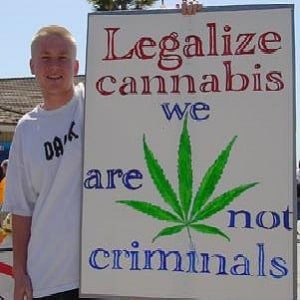 By Keith Stroup, NORML Legal Counsel
By Keith Stroup, NORML Legal Counsel
I was recently asked, following a lecture I had given, what the next generation of legalization advocates could do to move legalization forward, and to leave their mark on the legalization movement.
The question was intriguing, and caused me to revisit in my mind the areas of public policy in which marijuana smokers continue to be treated unfairly, even in states that have legalized marijuana, and to consider why these problems remain so difficult for us to correct.
I have discussed in previous columns the continuing problems we face as smokers dealing with employment discrimination, child custody and related issues, and charges of driving under the influence of marijuana. Simply put, marijuana smokers continue to be treated as people who, because of their marijuana smoking, can be fired from their job without the slightest indication they have ever gone to work in an impaired condition; continue to be presumed by the state child welfare agencies to be unfit parents, without any evidence to suggest that conclusion; and continue to face DUID charges without any showing of driving while impaired.
Most Americans are decent, fair-minded people who would generally want to treat their fellow citizens in a fair manner, just as they would want to be treated. But because of the impact of decades of “reefer madness” propaganda and widespread misinformation about marijuana and marijuana smokers, once the factor of marijuana smoking enters the equation, these same Americans are largely willing to allow – or even encourage – policies that needlessly and unfairly harm the families, careers and lives of people who are good, hard-working individuals who happen to enjoy marijuana smoking when they relax in the evening, just as tens of millions of good, hard-working Americans enjoy a beer or a glass of wine when they relax in the evening.
Two out of Three Americans Have an Unfavorable Impression of Marijuana Smokers
This is true despite the fact that a majority of the American public now support full legalization. They have concluded that prohibition is a failed public policy that causes far more harm than the use of marijuana itself; but they are certainly not pro-marijuana. This is an important distinction. These citizens were dubbed the “marijuana middle” by the Third Way, a Washington, DC think tank that recently released polling data showing, somewhat shockingly, that while a majority of the country now favor full legalization, 64 percent of those same people have a negative impression of recreational marijuana smokers!
They believe that those of us who smoke marijuana are doing something wrong, and harmful, regardless of the legal status of marijuana. Thus in every policy area that arises, including especially employment, child custody and driving, they continue to presume the worst-case scenario, and, in their minds, to “err on the side of caution” to protect the non-smoking public from the perceived dangers of marijuana smoking and marijuana smokers.
This is largely the result of the “stupid stoner” stereotypes that too many Americans continue to embrace for recreational users. While many of us who smoke have learned to laugh at those stereotypes when they appear in the popular culture, apparently too many of our fellow citizens fail to see the humor, and take them seriously. They see us as slackers who fail to live-up to our potential, and whose primary interest in life is getting stoned. And until we correct this misimpression, it will be impossible to put in place policies that treat responsible marijuana smokers fairly.
And that brings me back to the question I was asked regarding what the new generation of legalization advocates could do to leave their mark on the legalization movement. My answer is that the latest generation of advocates must come out of the closet in far greater numbers – to stand-up tall and proudly announce that you are a responsible marijuana smoker, as well as a good, productive citizen.
It is only by demonstrating that marijuana smokers are hard-working, middle class individuals who raise families, pay taxes and contribute in a positive manner to our communities, that we can finally overcome those negative stereotypes that persist. And until we overcome those stereotypes, we cannot achieve full equality with our fellow citizens. We will continue to be treated unfairly both legally and culturally.
In earlier decades, it took real courage to acknowledge your use of marijuana, as one might find yourself shunted by friends or colleagues, or even worse, targeted by law enforcement. And even today, the Third Way polling results clearly demonstrate there remains a stigma to marijuana smoking, and we must overcome that stigma if we are to avoid these unfair policies, even after legalization.
It is the younger generation of smokers who must face this final challenge. We have, after decades of effort, begun the long process of redefining the responsible use of marijuana as a legal activity. Over the next several years, we should succeed in ending the practice of arresting marijuana smokers all throughout the country.
But we will continue to be treated unfairly until we overcome this persistent cultural bias. So long as 65% of the public have an unfavorable view of those of us who smoke, we simply cannot achieve full equality. To do that we must convince the majority of the non-smokers that marijuana smokers are just average Americans – good people -who just happen to enjoy smoking marijuana. We need to move the “marijuana middle” to a place where they are emotionally more comfortable with those of us who smoke. This is a necessary cultural shift.
That is the challenge for our younger colleagues in the legalization movement.
Source: NORML - make a donation








